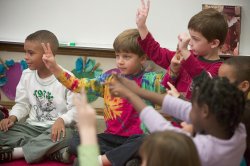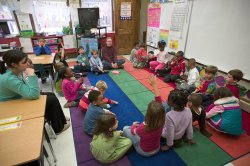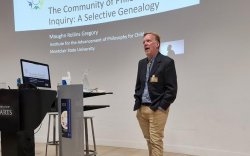The IAPC is the world’s oldest organization devoted to young people’s philosophical practice.
Our three-fold mission includes education (offering curriculum, teaching resources and professional development workshops in Philosophy for Children), advocacy of children’s philosophy, and research.



